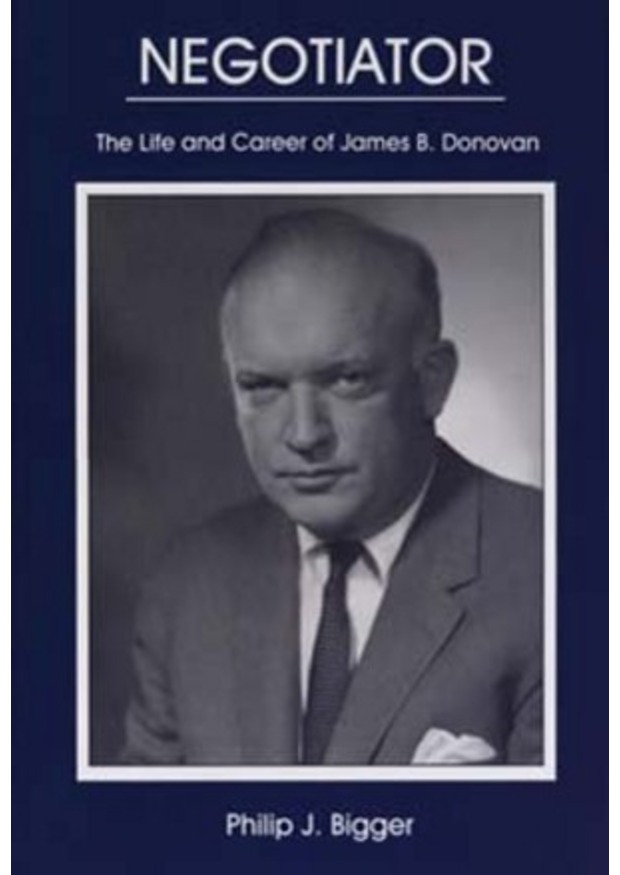The Life and Career of James B. Donovan
James B. Donovan (1916-70) was an intrepid lawyer and a skillful negotiator. In his defense of unpopular causes he has been likened to Thomas Erskine, who represented Thomas Paine during the French Revolution, and Harold Medina, who defended an accused accomplice of Nazi saboteurs during World War II. "His courage was apparent in facing down demonstrators, hecklers, racists, and pickets, and in dealing with calculating Russian agents, hostile Cuban officers, and angry students, writes Phil Bigger, in this exciting tale of Donovan's life.
The son of a physician and an accomplished pianist, he graduated from Harvard Law School. Shortly after he received his degree, the United States entered World War II, and Donovan enlisted in the Navy. Appointed general counsel to the Office of Strategic Services, he later captured the publics attention as an OSS prosecutor at Nuremberg, where he was responsible for presenting horrific photographic evidence against major Nazi leaders at the initial trial. As a defense attorney, he saved the life of a convicted Russian spy, Rudolf Abel, arguing, "It is possible that in the foreseeable future an American of equivalent rank will be captured by Soviet Russia or an ally." His intuition was soon confirmed, and Donovan went on to negotiate Abel's exchange for U2 pilot Francis Gary Powers, who was shot down over Russia during a spying mission. So successful was he in dealing with the Russian KGB that the Kennedy White House asked him to attempt to secure the release of soldiers captured by Fidel Castro during the failed Bay of Pigs invasion. Not only did he obtain the release of the 1,113 prisoners through his dialogues with the Cuban leader, but he also negotiated for the freedom of 8,500 other Cubans, including relatives of the prisoners as well as more than thirty Americans imprisoned, including three CIA agents.
In the 1960s, Donovan was president of the New York City Board of Education and, later, of Pratt Institute when the struggle for integration of the public schools was at its peak and when violent student protests were common in universities. He was not always perfect, and his outspokenness could sometimes seem insensitive. For example, when asked on one occasion if striking teachers would still receive their regular salary, he remarked, "We don't pay people to march around buildings." But he was also supportive of his students. In his initial remarks on assuming the presidency of Pratt Institute, he clearly stated his belief that "the only thing that can kill a campus is student apathy." James Donovan's life was cut short at the age of fifty-three. Yet in his brief time he made significant contributions to the service of law, human rights, education, and peace.
The author's sources include more than the voluminous personal papers of Donovan at the Hoover Institution for War and Peace Studies and pertinent oral histories of the Kennedy Library. The book also had the advantage of interviews with his wife, children, colleagues, and associates. "Although his life was brief," writes Bigger, "it was filled with numerous accomplishments in international relations, the law, and education. Sharing his extraordinary life and valuable contributions with others is the purpose of this work."













